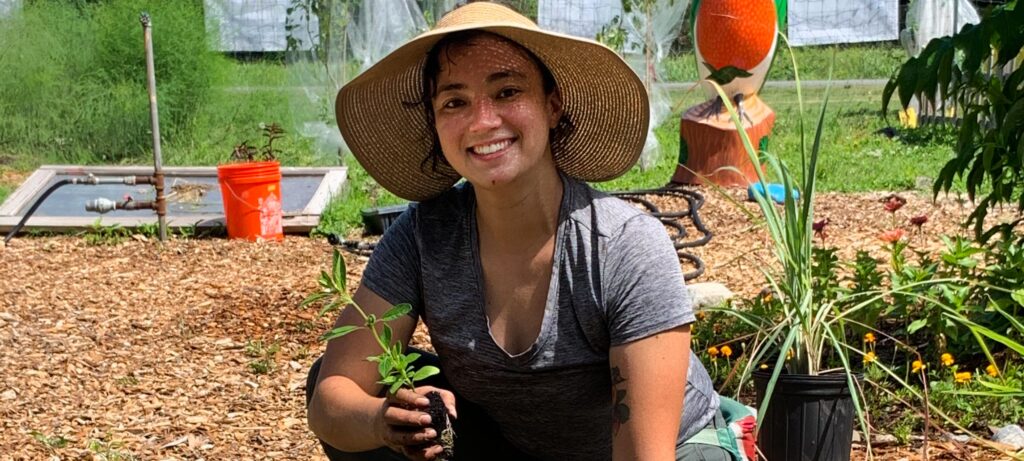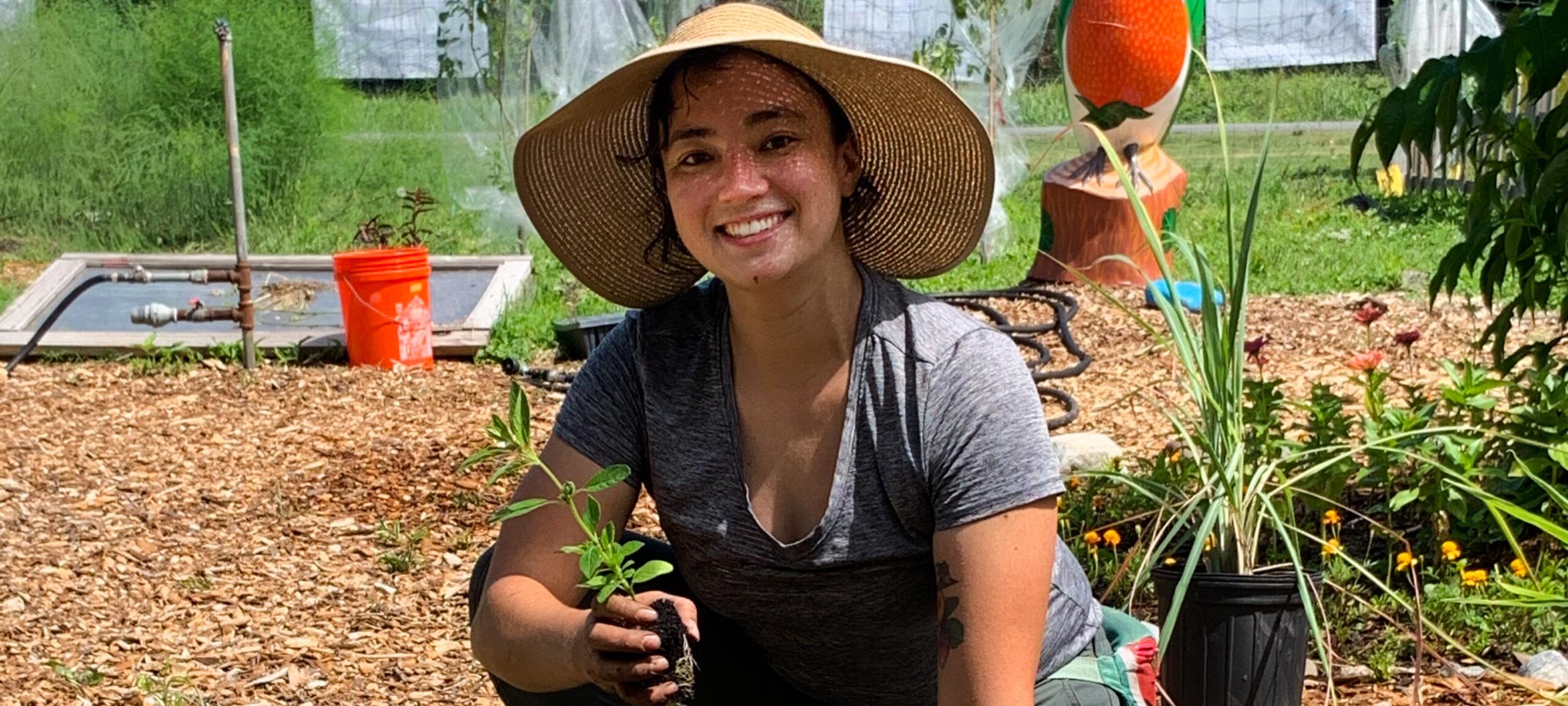Emilia’s Garden Tips: Leaving Dried Plants – Less work, Educational, and Beneficial!
See dried stems with round or oblong pods at the end of them?
Instead of cutting them out right away, see if you can explore the plants parts with your students. Depending on what was planted there, you can snap off the pods to shake and listen to the sounds, open them up to explore the size, shape, and texture of the seeds, and potentially save them (use old envelopes or plastic baggies & pens to label) to plant again next Spring or Summer!
Saving seeds this way works well for lettuce, spinach, radish, most root vegetables, dry shelling beans, and flowers. Sunflowers are a perfect plant to save seeds from (then dry/roast and eat!) if you can pick them before the birds do! Little hands will enjoy the meditative and repetitive task of shelling beans or seeds.
Leaving these dried plants through the winter also helps our pollinator friends! Similar to the “Leave the Leaves” idea, letting the dried up stalks and stems of the plants from the spring and summer remain in your garden spaces can create food and habitat for pollinator insects and other vertebrates. It is also a great way to continue protecting the soil from being exposed to the winter elements. This can be an alternative to mulching if you don’t have straw or leaves to use. According to the Xerces Society for Invertebrate Conservation, “The availability of nesting and overwintering habitat is one of the most important factors influencing populations of native bees and other beneficial insects.” And it’s less work – what a great excuse to procrastinate winter garden cleanup! For more info check out this resource from the Smithsonian Gardens: Winter Garden Maintenance for Wildlife Friendly Habitats.
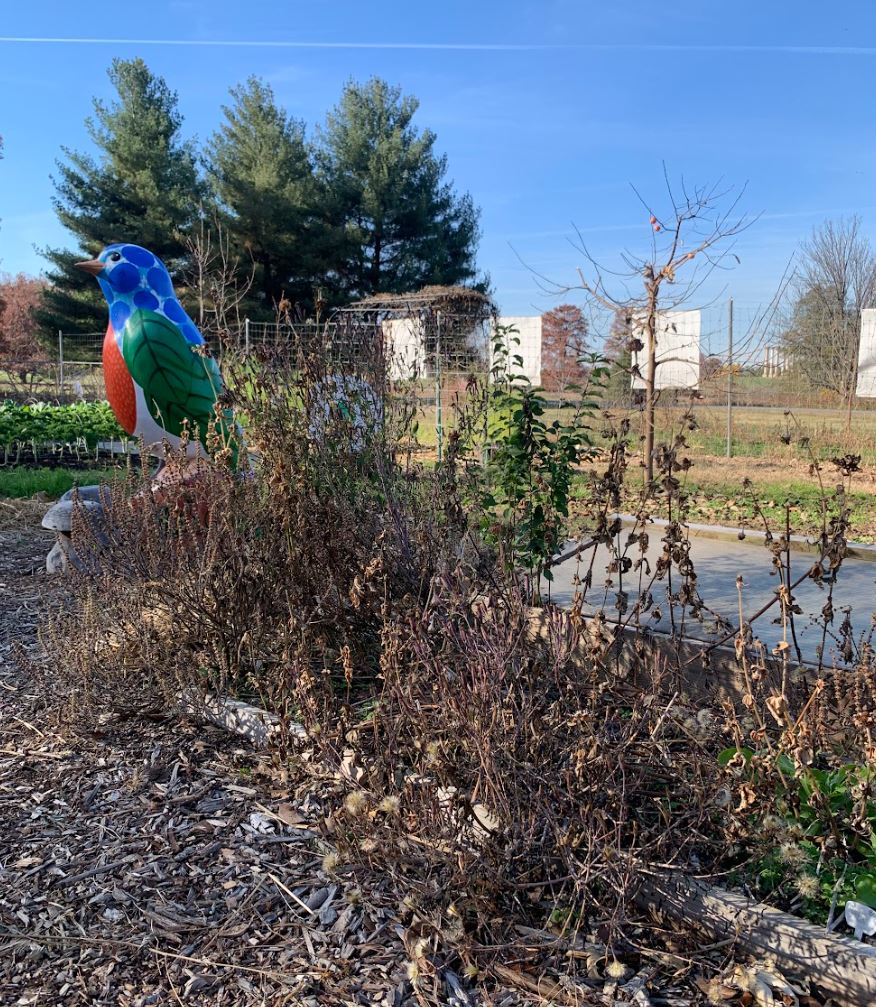
Dried flowers left in garden beds over winter become a habitat for insects and other vertebrates.
Additional Resources
Read Cover Cropping for a Healthier Garden, an article written by our partner Reana of Share a Seed.
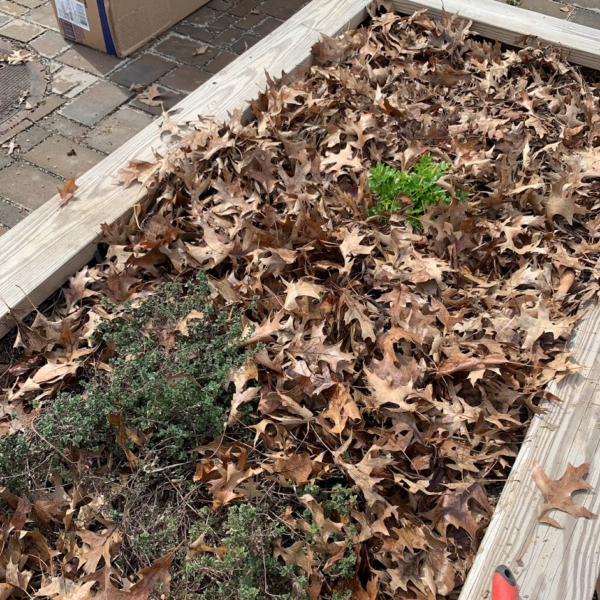
Dried leaves used as mulch in a raised garden bed.
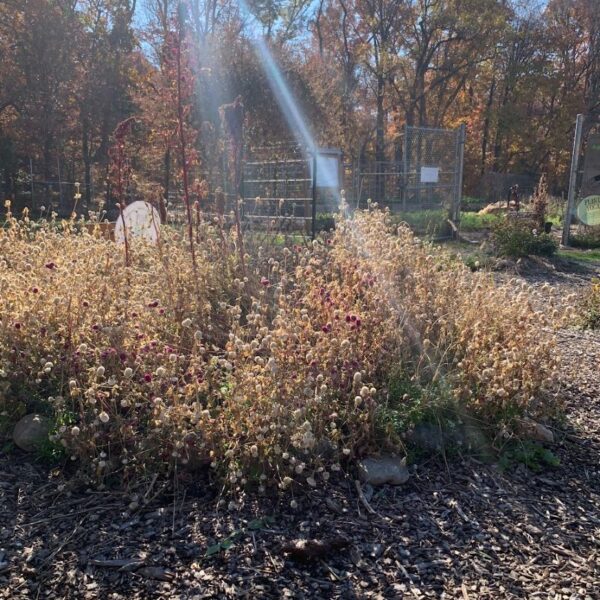
Dried flowers left in garden beds over winter become a habitat for insects and other vertebrates.


